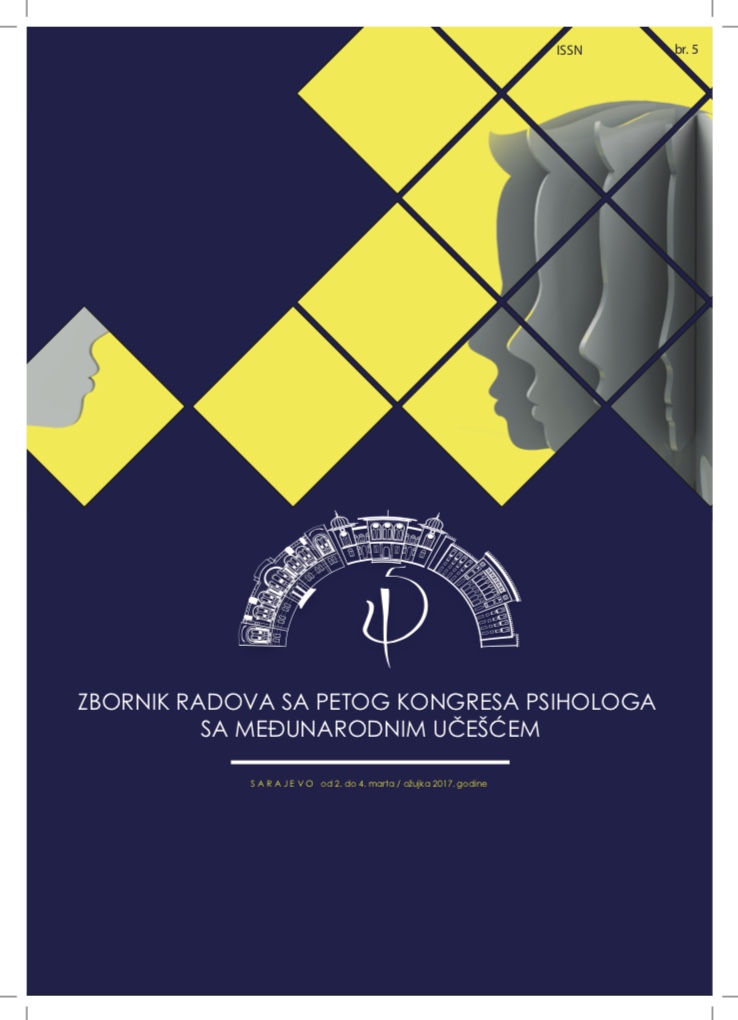Odnos zadovoljstva životom sa samopoštovanjem, fizičkim zdravljem, školskim uspehom i materijalnim stanjem kod adolescenata iz potpunih i nepotpunih porodica
The relationship of life satisfaction with self-esteem, physical health, school success, material status and the family completeness among adolescents
Author(s): Boban NedeljkovićSubject(s): Psychology, Family and social welfare
Published by: Logotip
Keywords: life satisfaction;self-esteem;physical health;school success;material status;
Summary/Abstract: Satisfaction with life is one of the factors of subjective well-being and in psychological research is often considered as a comprehensive perception and cognitive evaluation of one's own life. Self-esteem, defined as the degree of individual's belief in own abilities, importance or value, is an evaluation part of the self-concept. It is considered that the evaluation of life satisfaction is influenced by family, personal, health, socioeconomic and other factors. The paper examines the satisfaction with life and self-esteem in adolescents from complete and incomplete families, as well as the relationship of satisfaction with life with the material status, assessment of physical health and school success. The aim of the research was to examine the relations of life satisfaction with self-esteem, physical health, school success, material status and the family completeness, as well as to examine whether there is a possibility of predicting life satisfaction based on these variables. The sample consisted of 135 respondents of both sexes, fourth grade gymnasium students. The following instruments were used: Satisfaction with life scale (SWLS, Diener et al., 1985) and Rosenberg's self-esteem scale (RSES; Rosenberg, 1965). The health status was estimated using a global physical health assessment on a 7-point scale. The results showed that in adolescents from intact families there is a higher level of life satisfaction compared to adolescents from non-intact families (t = 2.613, p <0.05), while the difference in self-esteem was not obtained. A positive correlation of life satisfaction was obtain with self-esteem (r= 0.44, p <0.01), material status (r=.416, p<.01), physical health (r = 0.278, p <0.01), and school success (r = 0.28, p <0.01) P <0.01). Regression analysis has shown that, based on self-esteem, physical health, school success, material condition and family completeness, life satisfaction can be predicted. The obtained statistically significant model explains 41% of the life satisfaction variance, and the largest partial contribution has a material state (β = 0.327, p <0.01) and self-esteem (β = 0.326, p <0.01). The results obtained are consistent with the research assumptions and confirm the importance of different factors for the perception of life satisfaction.
Journal: Zbornik radova Kongresa psihologa Bosne i Hercegovine
- Issue Year: 2019
- Issue No: 5
- Page Range: 219-234
- Page Count: 16
- Language: Serbian

